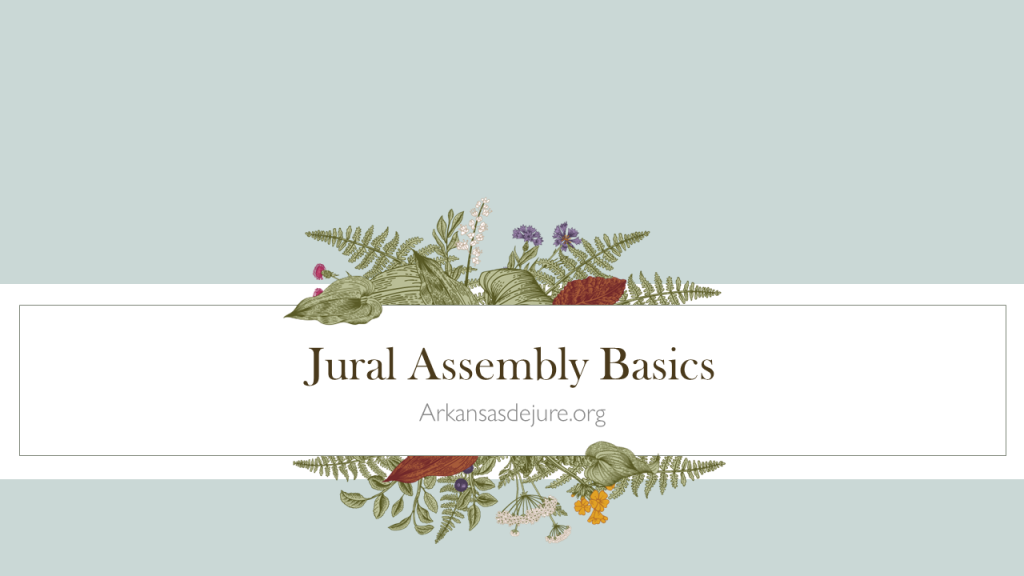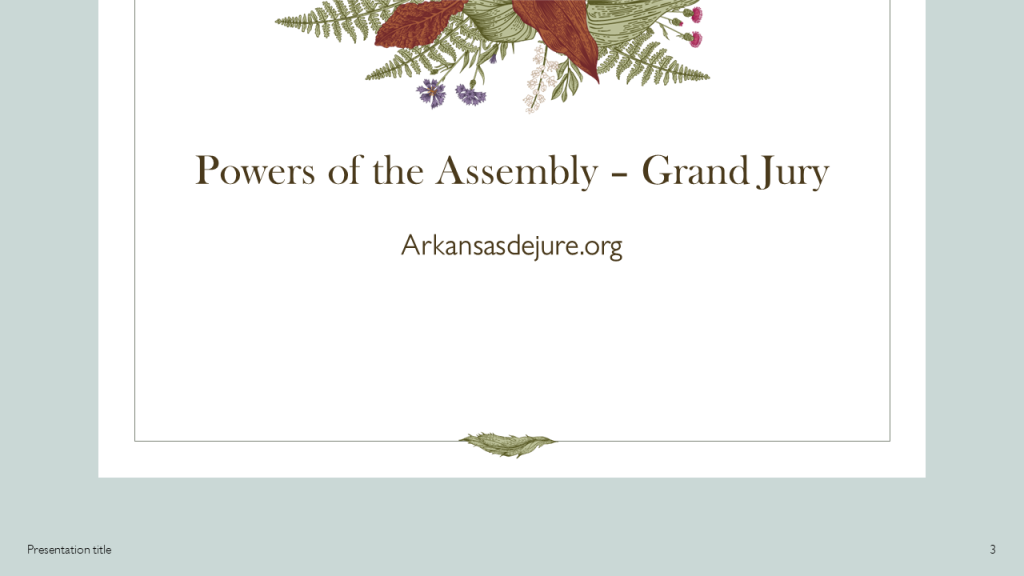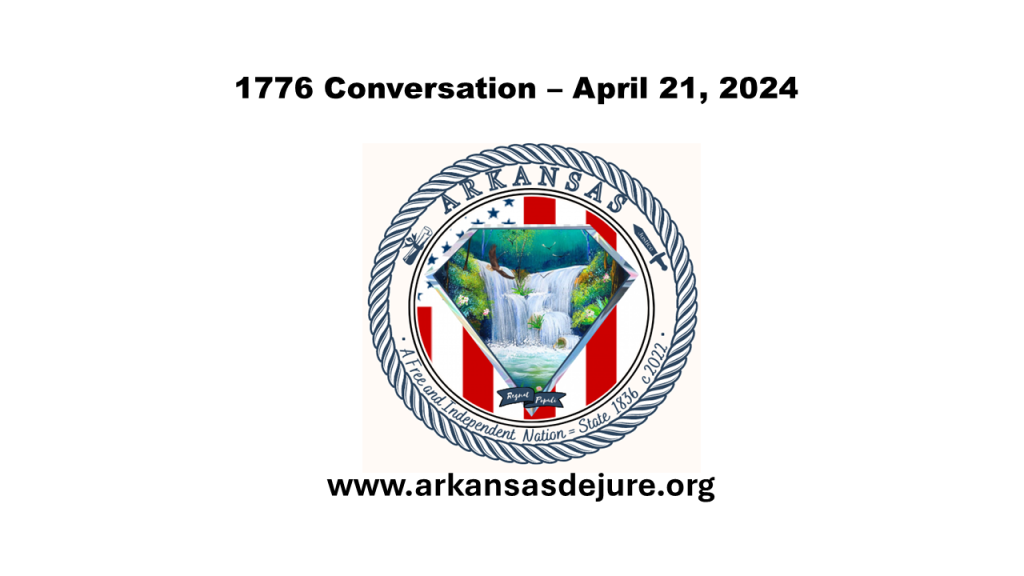How do we govern ourselves? If we look back to our founding fathers and how they did it, how they set up a system of self-governance for the states, we find the end result; the Organic Laws (Articles of Confederation, Constitution, The Declaration of Independence, the Northwest Ordinance). But what was the process our founders used to reach those agreements and free themselves from England? The particular details.
Our General Jural Assemblies are based on what our founders did to establish the Republic. We know they had assemblies. How did those assemblies operate? Did they have the same set of officers we have in our assemblies today? Did they have membership requirements? Did they have policies to govern day to day operations? How much of what they did wasn’t written down because it was common knowledge within the culture of the 1700s. For example, membership was restricted to men and usually, land owners.
We have the Federal Papers revealing heated arguments between the federalists and anti-federalists about how we should govern. We know that one way of settling such intractable differences between two parties was through the duel, the one that lived won. I suggest that’s an example of something our founders did that does not serve our needs today. Nor does restricting membership to men and land owners only.
It’s important that we “walk-the-walk” of our founders because they were successful in breaking the chains that bound them to England (for a time). We believe their methods will bring success in breaking the chains binding us to an unlawful corporate government… because they wrote it into the law of the land.
They gave us the particulars on how the Republic functions through the Articles of Confederation and the Constitution, but when it comes to the particulars of how the assembly itself functioned, what must we adopt to ensure our own success?




Pingback: Governing Conflict Pt 2 – Colonial Era General Assemblies – Arkansas a Free and Independent State